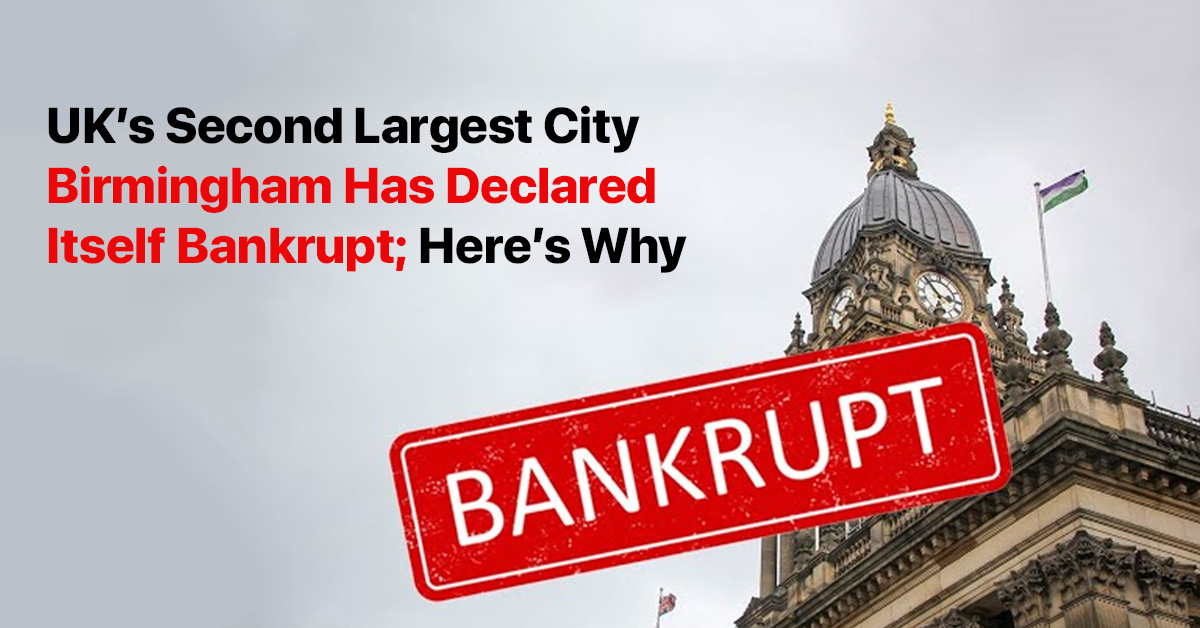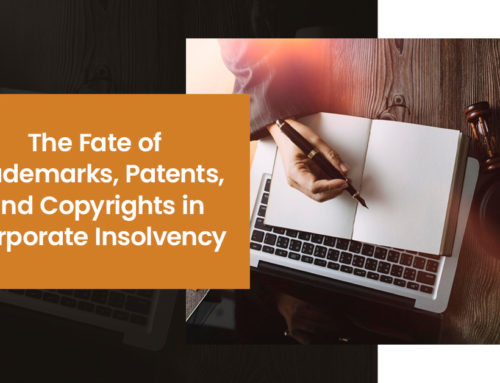In a move that has shocked many, Birmingham, the UK’s second-largest city, has declared itself bankrupt. This announcement sent ripples across the nation, bringing to light the severe financial strain that local councils are facing. As insolvency experts, we’re here to unravel the complexities of this situation and explore why Birmingham has found itself in such dire straits.
The Causes of Birmingham’s Financial Crisis
The road to bankruptcy is never straightforward, and Birmingham’s journey is no exception. Multiple factors have contributed to the city’s current financial woes, ranging from equal pay demands to mismanagement of resources.
- Equal Pay Demands: The Labour-led council in Birmingham has been grappling with equal pay claims brought by its female staff, estimated to cost up to £760 million. In June, the council disclosed that it had already paid out £1.1 billion to female workers but was still facing a liability of £650-£750 million, accruing at a rate of £5 million to £14 million a month.
- Mismanagement of Resources: Birmingham City Council also faced criticism for its spending on various projects, including a botched IT system by Oracle, which was supposed to cost £19 million but is expected to cost £100 million. Additionally, the council spent £184 million on its bid to stage the Commonwealth Games and invested in various other projects, such as hydrogen buses, cycle lanes, and the 2026 European Athletics Championship.
- Financial Strain from External Factors: Like many other local councils, Birmingham has felt the pinch of inflation, rising demand for adult social care, and dramatic reductions in income from business taxes. These factors have further compounded the financial crisis, leaving the council in a precarious position.
The Section 114 Notice and Its Implications
In response to the financial crisis, Birmingham City Council issued a Section 114 notice, a serious step that indicates the council’s inability to balance its books. This notice means that all spending, except for essential services, has been halted. Birmingham joins a string of other local authorities, including Woking, Croydon, and Thurrock, in a similar predicament.
The issuance of a Section 114 notice is a clear sign that Birmingham has declared itself bankrupt, underscoring the severity of the situation. The council is now focused on protecting core services while other services across the city face funding cuts.
The Broader Context: A Crisis in Local Government
Birmingham’s bankruptcy is not an isolated incident. Local councils across the UK are facing a financial crisis, with the Local Government Association estimating a £3 billion funding gap over the next two years to maintain services at current levels. The combination of funding cuts, botched investment projects, and rising costs has created a perfect storm, pushing councils to the brink.
The government’s refusal to provide additional funding has only added to the strain, with Prime Minister Rishi Sunak’s government asserting that it is up to locally elected councils to manage their budgets.
What This Means for Birmingham
As Birmingham navigates through its bankruptcy, the city council will need to make tough decisions to stabilise its finances. Essential services will be prioritised, but other services will likely face cuts. The equal pay controversy, coupled with the mismanagement of resources, has left the council in a precarious position, and it will take time and careful planning to recover.
The GMB union’s ongoing legal battle with the council over equal pay claims adds another layer of complexity to the situation. With potential payouts amounting to tens of billions of pounds across UK councils, the financial impact is significant.
What Happens Next?
The road to recovery will be long and challenging for Birmingham City Council. Tough decisions will need to be made, and the council must work diligently to balance its books and stabilise its finances. The issuance of the Section 114 notice is a stark reminder that Birmingham has declared itself bankrupt, and the city now faces the daunting task of navigating through this financial crisis.
The declaration of bankruptcy by Birmingham City Council is a clear sign of the financial strain local councils are facing. The combination of equal pay demands, mismanagement of resources, and external financial pressures has pushed Birmingham to the brink, resulting in the issuance of a Section 114 notice.
As the UK’s second-largest city grapples with its financial crisis, it serves as a sobering reminder of the challenges facing local government. Birmingham’s journey through bankruptcy will not be easy, but it is a necessary step to stabilise the council’s finances and protect essential services.
As insolvency experts, we understand the complexities of bankruptcy and the tough choices that must be made. If you are facing financial difficulties, whether as an individual or a business, we are here to help.
If you find yourself facing financial difficulties, you are not alone. Contact us today on 01603 552028 or email us at mail@leading.uk.com, and we’ll be happy to assist you. Remember, Birmingham has declared itself bankrupt, but there is a way forward, and we are here to help guide you through it.






